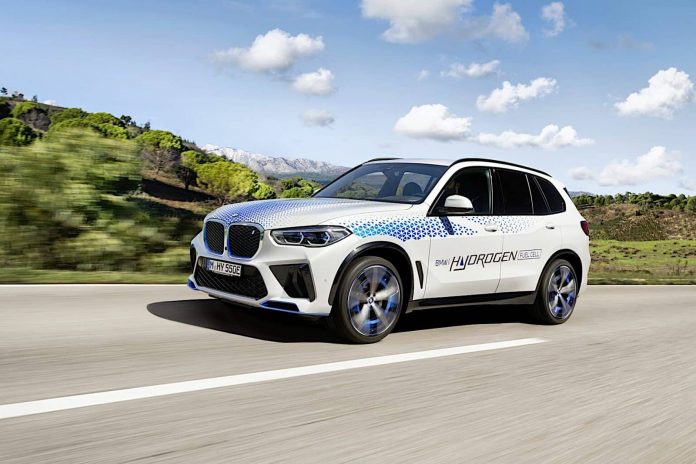Despite all the naysayers, BMW remains convinced there’s a future for fuel-cell technology and hopes to prove its point with the new iX5, a hydrogen-powered version of its familiar X5 sport-activity vehicle.
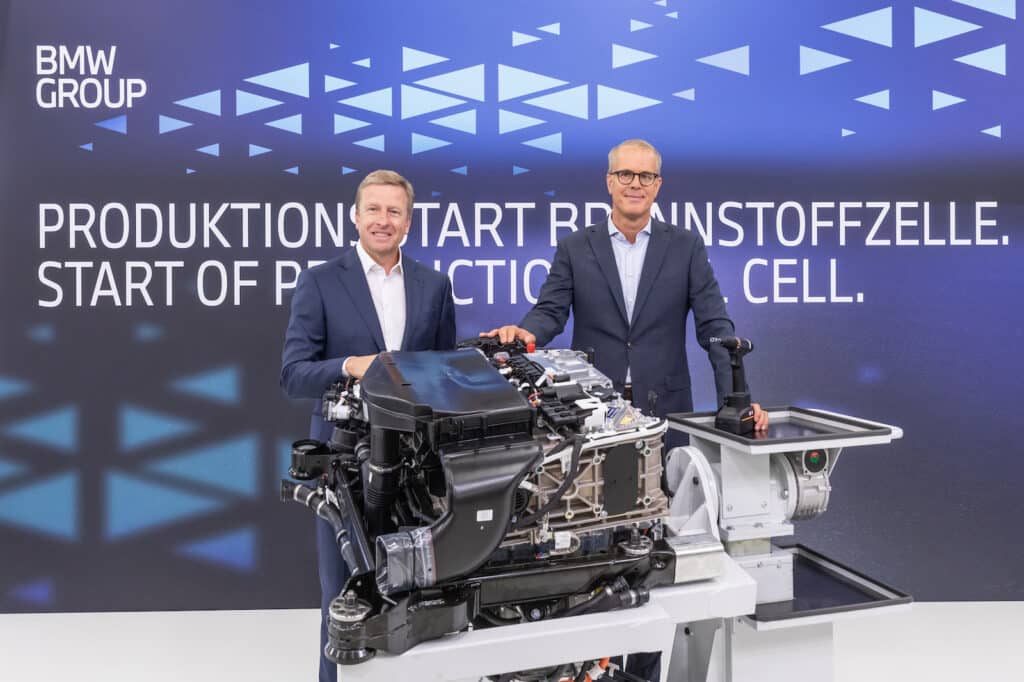
The Bavarian automaker confirmed earlier speculation it would launch a fuel-cell vehicle, or FCV, though it doesn’t expect to begin mass-producing the iX5 until at least 2025. In the near term, it plans to put the vehicle into limited production for field testing around the world.
“Hydrogen-powered cars are the ideal technology for us to complement pure battery-electric vehicles,” said BMW AG board chairman Oliver Zipse. Despite widespread skepticism about the technology, he added, “Hydrogen will become more relevant in individual mobility due to its advantages.”
From the moon back to earth
Fuel-cell technology was first conceived back in the 1850s. But it took more than a century to find practical application, providing power for the Apollo moon missions spacecraft.
Fuel-cell “stacks” combine a stream of hydrogen gas with oxygen from the atmosphere in the presence of a catalyst such as platinum. As the gases combine to form water vapor electrons are stripped away and used to power a vehicle’s electric motors. That’s led some to dub fuel cells “refillable batteries.”
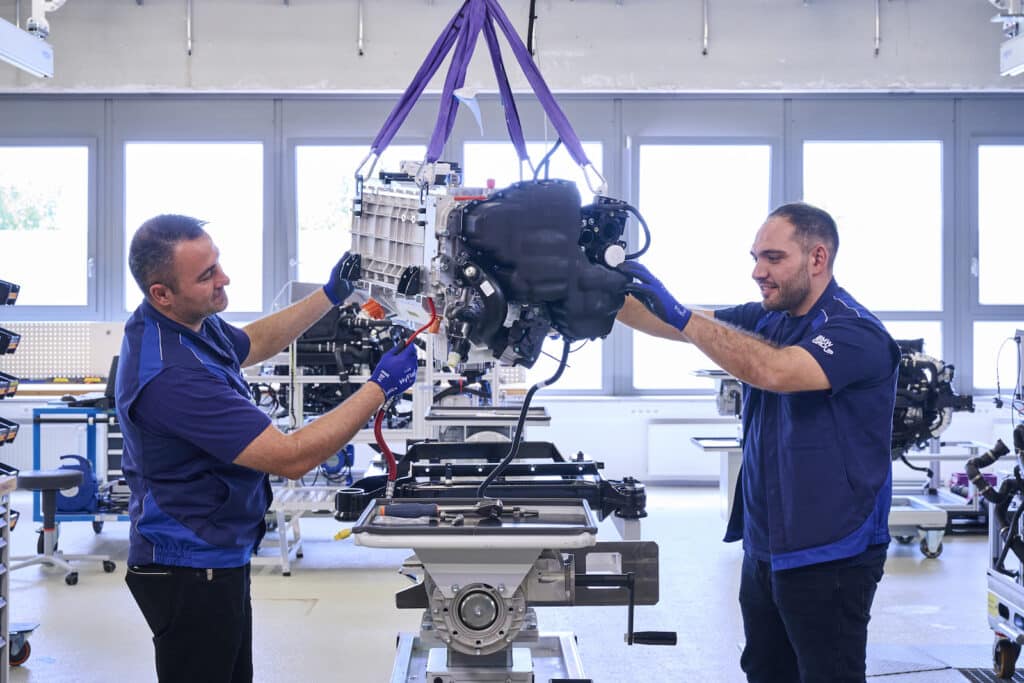
Indeed, one of the advantages Zipse referred to is the ability to refill an FCV’s hydrogen tanks in about the same time it takes to fill a gas tank. By comparison, it can take hours to fully recharge an electric vehicle. Meanwhile, fuel-cell technology can deliver longer range than most battery-electric cars.
Fuel-cell hardware is also smaller and lighter than the typical battery pack, and they use less of the exotic materials needed by lithium-ion batteries. The typical stack needs less platinum than is today required by a gas-powered vehicle’s catalytic converter.
Roll-out plans
In practice, fuel-cell vehicles like the iX5 do require small battery packs to help improve performance under high load demands, essentially turning them into hybrids. The iX5’s stack alone produces 125 kilowatts, or 175 horsepower. With the addition of the battery pack, that jumps to 275 kW, or 374 hp.
Rather than produce its own fuel-cell system, BMW is turning to Toyota for the stacks it will use in the iX5 — though it will produce some ancillary components, such as compressors. The two automakers already have a number of ties. Among other things, they jointly developed the underpinnings for the BMW Z4 and Toyota Supra sports cars.
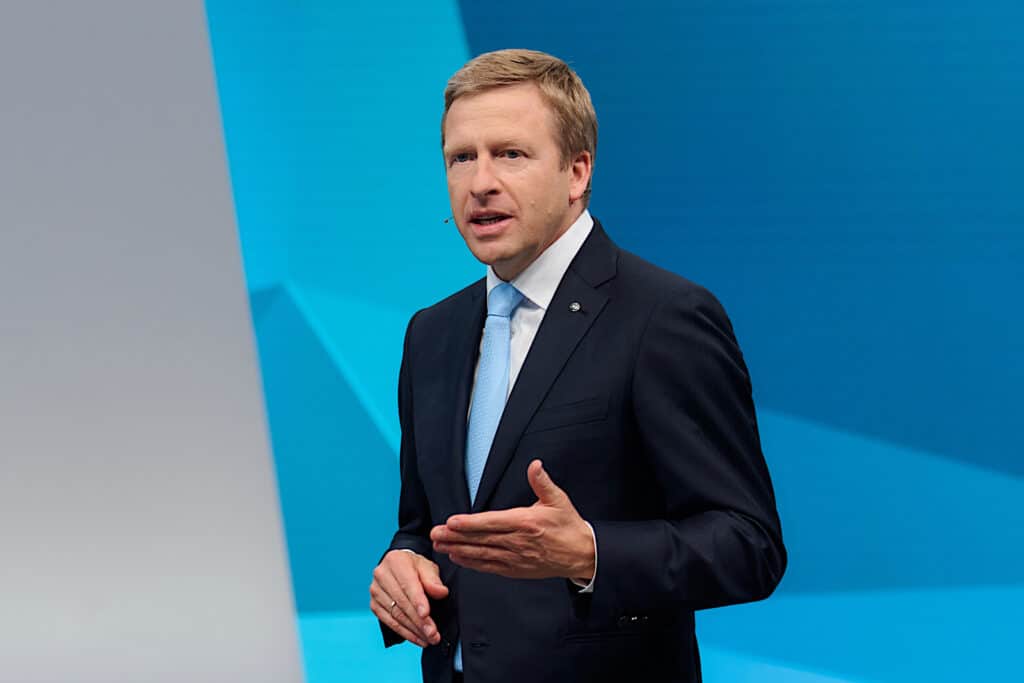
BMW plans to produce at least 100 copies of the hydrogen-powered iX5 this year and will begin field testing the prototypes around the world. BMW’s global sales chief Pieter Nota told Japan’s Nikkei news service that the iX5 could go into mass production as early as 2025.
For his part, CEO Zipse said last month that BMW could offer fuel-cell options for the “Neue Klasse” vehicles it is developing. Those are designed specifically to operate on alternative energy sources. The first of the Neue Klasse models are expected to reach production in 2025.
The chicken and the egg
One of the critical questions is how the iX5 will hold up under extreme weather conditions. Early fuel-cell vehicles were particularly challenged by cold weather where water vapor produced by the stack could freeze up. But BMW claimed in a press release that early versions of the iX5 “defie(d) even the lowest temperatures.”
As with battery-electric vehicles, another challenge will be to drive down costs — though the price of the typical stack has come down substantially, according to experts.
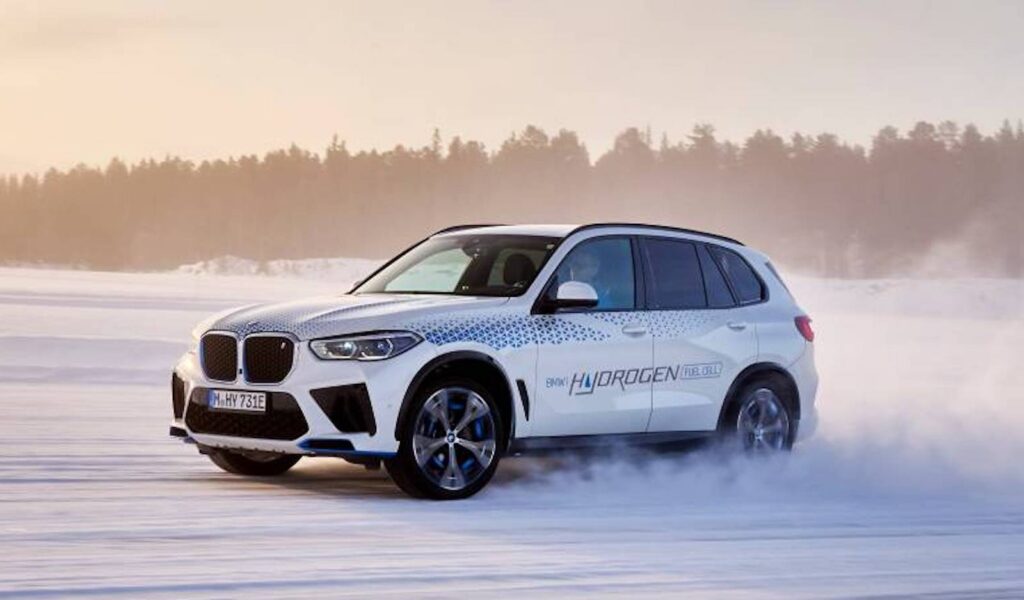
Then there’s the chicken-and-the-egg challenge. The lack of hydrogen production and distribution is the biggest obstacle to widespread sales. The good news for FCV proponents is that the number of hydrogen-fueling stations has been growing, especially in California and some parts of Europe.
Experts continue to debate whether fuel-cell vehicles are cleaner than battery-electric vehicles. That depends upon not only where their energy sources come from but also all the mining and manufacturing needed to put those vehicles on the road. When it comes to hydrogen itself, the gas is the most abundant element in the universe, but it is not available in pure form on Earth. Instead, it must be produced in various ways. That includes electrolyzing water — breaking it down into its basic components of two parts hydrogen and one part oxygen. But that is an energy intensive process. It can also be produced by refining various fossil fuels, but that creates carbon dioxide.
Who’s selling FCVs today?
Interest in fuel-cell technology has ridden a roller-coaster over the last several decades.
Currently, only three automakers offer FCVs on the retail market:
- Toyota sells the Mirai and U.S. sales chief Jack Hollis recently reported a rise in demand as more hydrogen fueling stations have opened;
- Hyundai has marketed several FCVs over the past decade and now offers the Nexo; and
- Honda has a hydrogen-powered version of its Clarity sedan — but it will stop leasing it at the end of the 2022 model year.
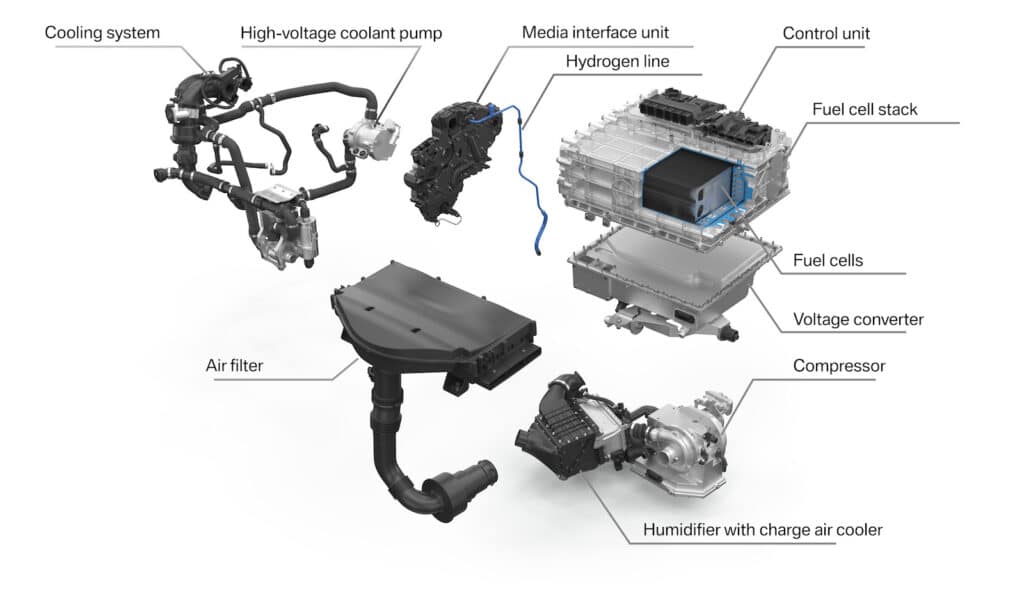
Porsche recently revealed a development program that would use hydrogen — but it would be burned in an internal combustion engine instead of feeding a fuel-cell stack. There currently are no production plans.
Alternative uses for fuel-cell technology
A number of other automakers, including Mercedes-Benz, Audi and General Motors, have scrubbed plans to add fuel-cell vehicles to their line-ups. Mercedes briefly offered a hydrogen version of its GLC crossover but decided to shift focus exclusively to battery-electric vehicles.
That said, there remains significant interest in using fuel-cell technology in other forms. GM is partnering with Honda and they will begin producing stacks at a plant near Detroit. The Detroit automaker plans to focus on non-automotive applications and is already selling hydrogen-powered stationary and mobile generators. It is also exploring ways to use fuel-cell systems to replace diesel locomotives.
Hyundai is likewise looking at various non-automotive transportation applications, including rail, boat and trucking. Toyota, meanwhile, is building a small fleet of prototype semi trucks, the automaker already testing them at the Ports of Long Beach and Los Angeles.
Some hydrogen proponents believe heavy-duty and long-distance trucking could become the best application for fuel-cell technology. Startup Nikola hopes to tap into that with several fuel-cell trucks it is now developing.

